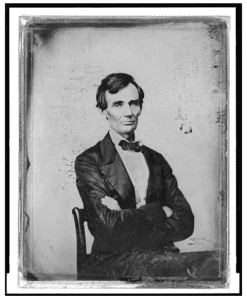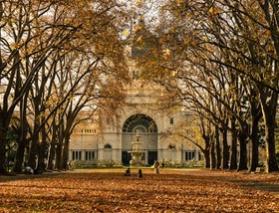
“We are not enemies, but friends. We must not be enemies. Though passion may have strained, it must not break our bonds of affection.” President Abraham Lincoln offered this message of peace in his First Inaugural Address on March 4, 1861. He was seeking to keep together a Union deeply divided by the polarizing issue of slavery. Though he outlawed slavery, even today some folks refuse to acknowledge its harmful effects, and many other issues continue to divide us. Despite tragic divisions, we must remain not enemies, but friends.
Like Abraham’s Lincoln’s divided states, we live in an era of polarization. While the challenges facing our nation and homes are less divisive, they are nonetheless real and concerning. Let’s pause to consider how we can become peacemakers in divisive circumstances.
Divisive Decisions
Imagine two divisive scenes in real life. First, while coworkers are collaborating on a long, difficult project, one of them snaps at a second of frustration. The second coworker now has a choice how to react: how to communicate feelings while maintaining friendship.
A second scene occurs at church. A person makes a racist comment or belittles members of an opposing political party. After the initial shock, the listener has a choice: how to clarify and identify the problem while promoting peace. Or, in other words, how to counter racism or bigotry and how to promote tolerance and kindness.
In both these scenarios, we would be wise to seek to understand the heart of the other and to measure our words with grace. How can we show courage, love, and peace in tense situations?
Making a conscious choice to show love and peace is a sign of a true disciple of Jesus Christ. “Blessed are the peacemakers,” Jesus taught in his Sermon on the Mount (Matthew 5:9). Then he challenged followers to show courage and love, even to those who fundamentally disagreed with them and mistreated them: “Love your enemies, bless them that curse you, do good to them that hate you, and pray for them which despitefully use you, and persecute you” (Matthew 5:44).
True Disciples, Not Enemies
Ponder for a moment what Jesus must have felt in his Last Supper as he humbly washed his disciples’ feet, knowing that one of them would betray him that very night. He taught them,
If I then, your Lord and Master, have washed your feet; ye also ought to wash one another’s feet. For I have given you an example, that ye should do as I have done to you. (John 13:14–15)
In that same tender sermon, Jesus said that how we treat others shows whether we are his disciples:
A new commandment I give unto you; as I have loved you, that ye also love one another. By this shall all men know that ye are my disciples, if ye have love one to another. (John 13:34–35)
Shortly after he shared these teachings, Jesus showed mercy by healing the ear of Malchus, a man who had accompanied Judas to arrest him (see Luke 22:50–51). He truly loved his enemies and sought to bless them even if he disagreed with them.
Despite feeling significant sadness and stress in divisive circumstances, Jesus showed love to those around him. This healing required courage and commitment to both love and peace.
As we seek to be friends not enemies with those around us, let’s measure our words with compassion and extend both justice and mercy. When divisive situations occur, do we speak up with courage and ask questions to clarify intent? How patient are we with others? Do we choose to avoid being easily provoked? And do we extend grace to others? Such situations can inspire us to act as friends, not enemies, and strengthen our bonds of affection to ensure a more perfect union.













